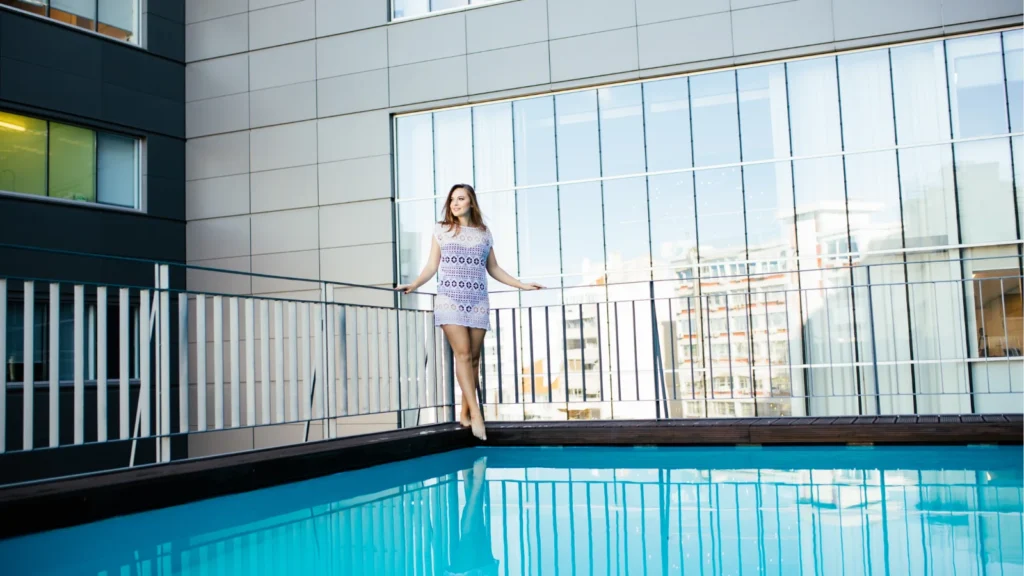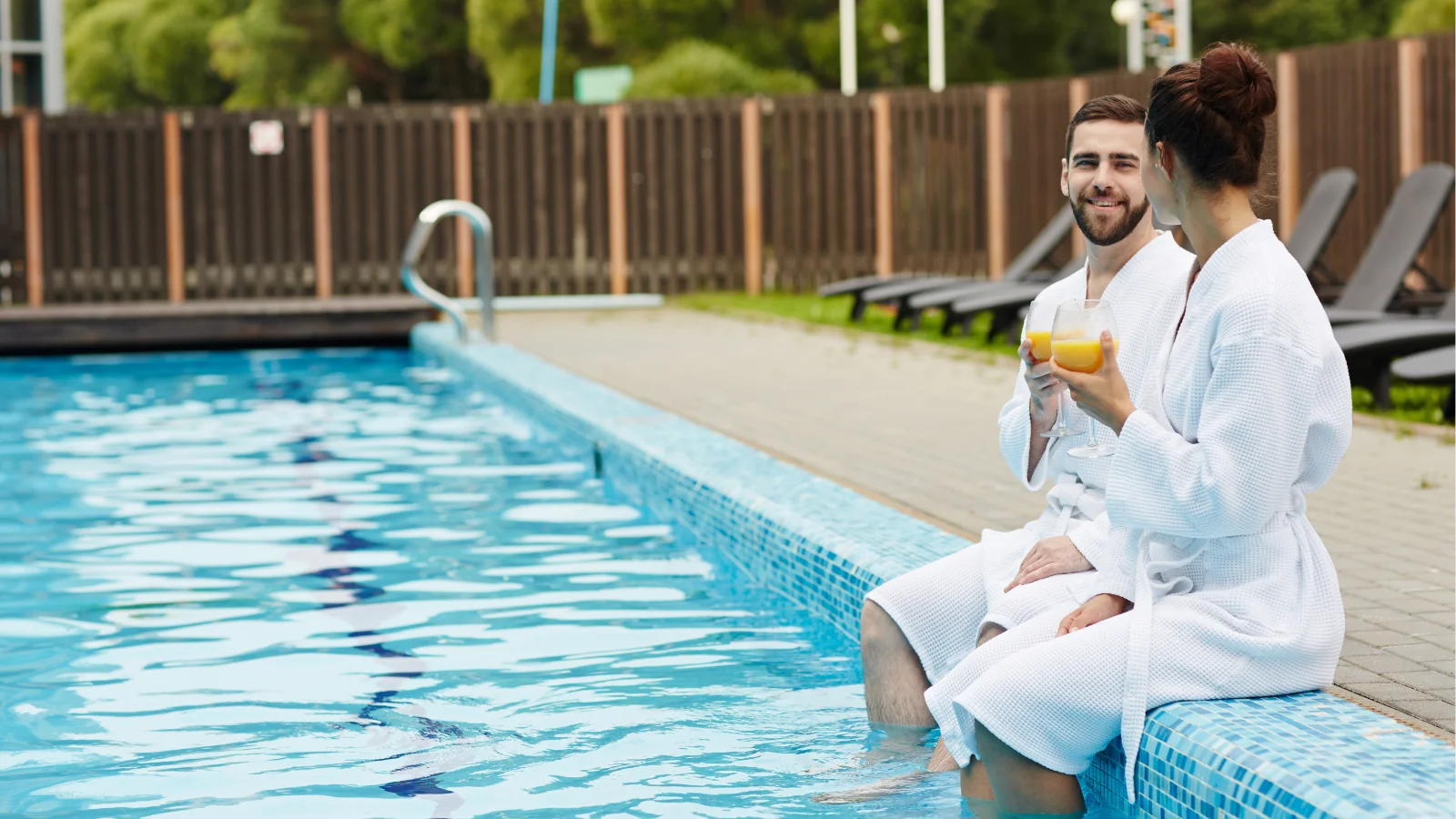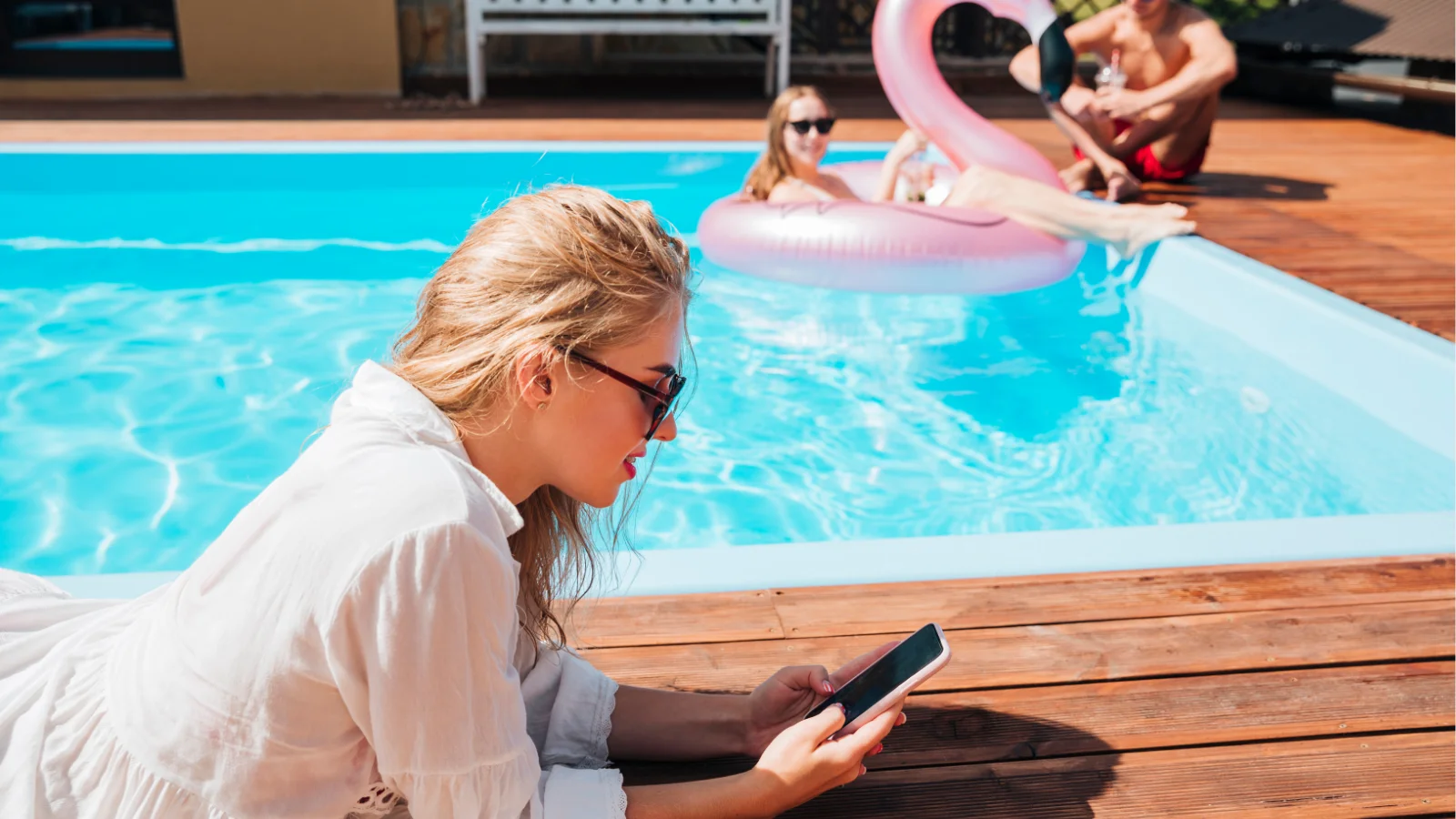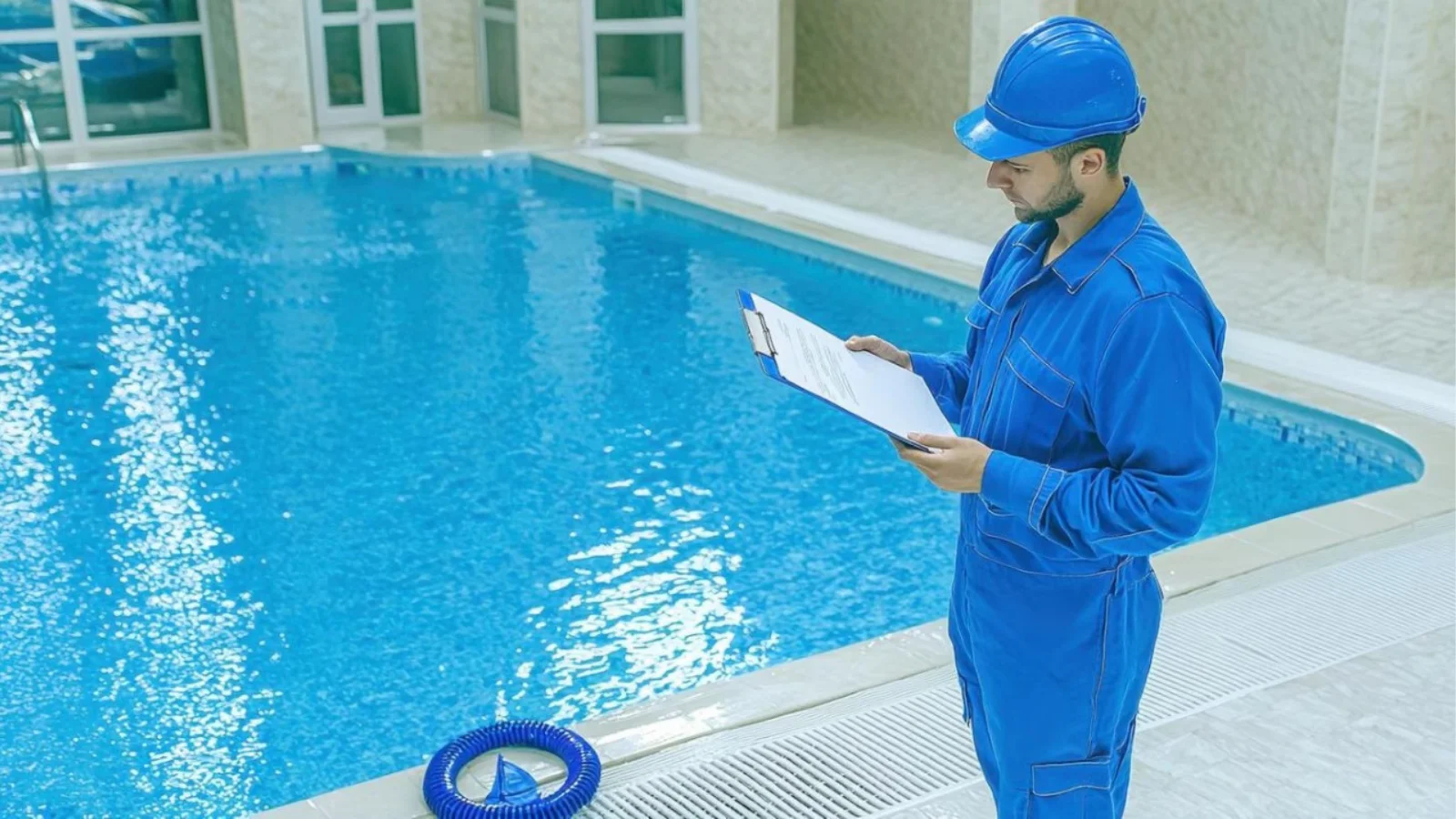A pool screen enclosure is more than a frame and mesh. It keeps your pool clean, extends outdoor living, and adds safety. Florida homeowners value these enclosures for comfort and long-term savings.
Pool screen enclosures offer practical protection against insects, debris, and weather conditions. They also improve home value by adding an attractive outdoor feature. If you are considering one, learning about the options and care is essential. Below, we explore features, benefits, and practical tips to help you make the best choice.
What Is a Pool Screen Enclosure?
A pool screen enclosure is a structure built around a swimming pool, usually using aluminum frames and mesh panels. The mesh provides airflow while blocking leaves, insects, and other unwanted elements. It is a popular choice in Florida because it allows outdoor enjoyment without the constant hassle of cleaning.
Unlike traditional pool covers, screen enclosures provide visibility and comfort. Families enjoy swimming under natural light without exposure to bugs or debris. The design also reduces the use of chemicals by limiting outside contamination. Homeowners often choose them for safety, beauty, and reduced maintenance.
Benefits of a Pool Screen Enclosure
- Cleaner Pool: Keeps out leaves, dirt, and insects, reducing cleaning time and maintenance costs.
- Safer Swimming: Creates a barrier to protect children and pets from unsupervised access.
- Health Protection: Blocks mosquitoes and pests, lowering risks of bites and diseases.
- Lower Costs: Reduces chemical use and equipment strain, saving money on repairs.
- Comfortable Space: Provides shade, lowers pool water temperature, and cuts UV exposure.
- Increased Value: Boosts property appeal and shows long-term home care.
- Outdoor Living: Expands space for dining, relaxing, or entertaining without pests.
- Privacy: Adds a sense of security and seclusion while enjoying the pool.
Types of Pool Screen Enclosures
Standard Screen Enclosure
A standard screen enclosure is the most common option. It features an aluminum frame and mesh panels, offering reliable protection from bugs and debris. This type is affordable, durable, and ideal for most residential pools.
It provides excellent ventilation, making the pool area feel airy and natural. The screen allows sunlight to pass through while blocking pests. Homeowners choose this option for a balance between function, cost, and maintenance.
Upgraded Screen Enclosure
Upgraded screen enclosures use stronger materials such as polyester or fiberglass-coated mesh. These resist tears, offer UV protection, and withstand harsh weather. They cost more than standard screens but provide longer service life.
For families in areas with strong winds or pets, upgraded screens are a smart investment. They ensure lasting comfort and reduce repair frequency. Homeowners who prioritize durability often choose this option.
Glass Pool Enclosure
Glass enclosures deliver luxury and style. They use tempered glass panels instead of mesh, creating a modern, sleek design. This type provides unmatched protection against weather while allowing clear visibility.
Although more expensive, glass enclosures last longer and add a premium touch to properties. They require professional installation and strong foundations. Many homeowners pick them when aiming for a high-end look.
Retractable Enclosure
Retractable pool enclosures offer flexibility. They use sliding panels or sections that open and close as needed. On sunny days, you can slide them open for fresh air. During storms or cooler months, close them for complete coverage.
These systems cost more but provide year-round usability. They are popular among families who enjoy adjusting outdoor experiences based on the weather. Retractable designs combine freedom with protection.
Inflatable Enclosure
Inflatable pool enclosures are temporary structures made from lightweight materials. They can be installed quickly and removed when not needed. This option is ideal for short-term use or seasonal protection.
Though not as durable, they provide an affordable solution for homeowners on a budget. Inflatable designs are easy to maintain and store, making them convenient for occasional use.
Factors to Consider Before Choosing a Pool Screen Enclosure
Before investing in a pool screen enclosure, it’s important to weigh a few key factors. The right choice depends on your budget, local conditions, and personal style preferences. Considering these points will help you select an enclosure that fits both your needs and long-term goals.
Budget
Decide how much you want to spend before starting. Standard mesh enclosures are affordable and practical, while glass or retractable styles cost more but offer added comfort and style. Balance your budget with long-term value and maintenance savings.
Climate
Consider your local weather before choosing. Florida homeowners often face storms, heat, and high humidity. Strong aluminum frames and UV-resistant mesh provide durability and protect against damage. Investing in weather-ready materials ensures longer-lasting performance.
Design
Your enclosure should fit both your pool area and home style. Standard mesh suits most homes, upgraded screens add strength, and glass designs create a modern look. Retractable options add flexibility, letting you open or close the space as needed.
Permits
Many counties require permits for permanent enclosures. Glass or large structures almost always need approval. Checking codes early prevents costly delays or legal issues. Working with licensed contractors helps ensure your project meets safety and zoning requirements.
Maintenance Tips for Pool Screen Enclosures
Keeping your pool screen enclosure in top shape is simple. Regular care extends its life and keeps it looking new.
- Clean mesh panels with mild soap and water monthly.
- Inspect for tears or holes and repair quickly.
- Wash aluminum frames to prevent oxidation.
- Trim nearby trees to avoid scratches and debris.
- Schedule yearly professional inspections for safety.
Safety and Health Benefits
Pool screen enclosures provide more than comfort—they enhance safety for every family member. The screened barrier prevents unsupervised access by children and pets. This reduces drowning risks, which are a serious concern for families with young kids. By adding this layer of security, homeowners enjoy peace of mind while still making the pool inviting and fun.
Health benefits also make enclosures a wise investment. Screens block insects, including mosquitoes that spread harmful diseases. Cleaner water means fewer chemicals are needed, which lowers skin irritation and allergic reactions.
Reduced debris keeps bacteria from building up in the pool. Families benefit from healthier swimming conditions, fewer maintenance issues, and an outdoor space that feels both safe and refreshing.
Cost of Pool Screen Enclosures
The cost varies by type, material, and size. Standard enclosures are more affordable, while glass and retractable models are premium. Installation complexity also affects final pricing.
Though initial costs may seem high, enclosures pay for themselves over time. Reduced cleaning, fewer repairs, and improved property value make them a worthwhile investment. Many homeowners see them as essential upgrades.
Professional Screen Repair Services in Tampa!
A pool screen enclosure transforms your outdoor space into a safer, cleaner, and more comfortable place to enjoy. Whether you want added privacy, lower maintenance, or year-round usability, the right enclosure makes a big difference.
Your trusted provider of screen repair in Tampa is Eclipse Service Hub. Call (813) 412-8286 today to explore your options and get expert guidance for your home.
Frequently Asked Questions
How long does a pool screen enclosure last?
Most enclosures last 10 to 15 years. Glass or upgraded models often last longer with proper care and timely maintenance.
Do I need a permit for installation?
Many Florida counties require permits. Always check local building codes before starting, especially for large or glass enclosures.
Does a pool enclosure reduce sun exposure?
Yes. Mesh screens provide shade and reduce UV rays. They help keep the pool water cooler and swimming more comfortable.
What is the best enclosure for windy areas?
Upgraded mesh or glass enclosures work best. Stronger materials and reinforced frames handle storms better than standard mesh.





